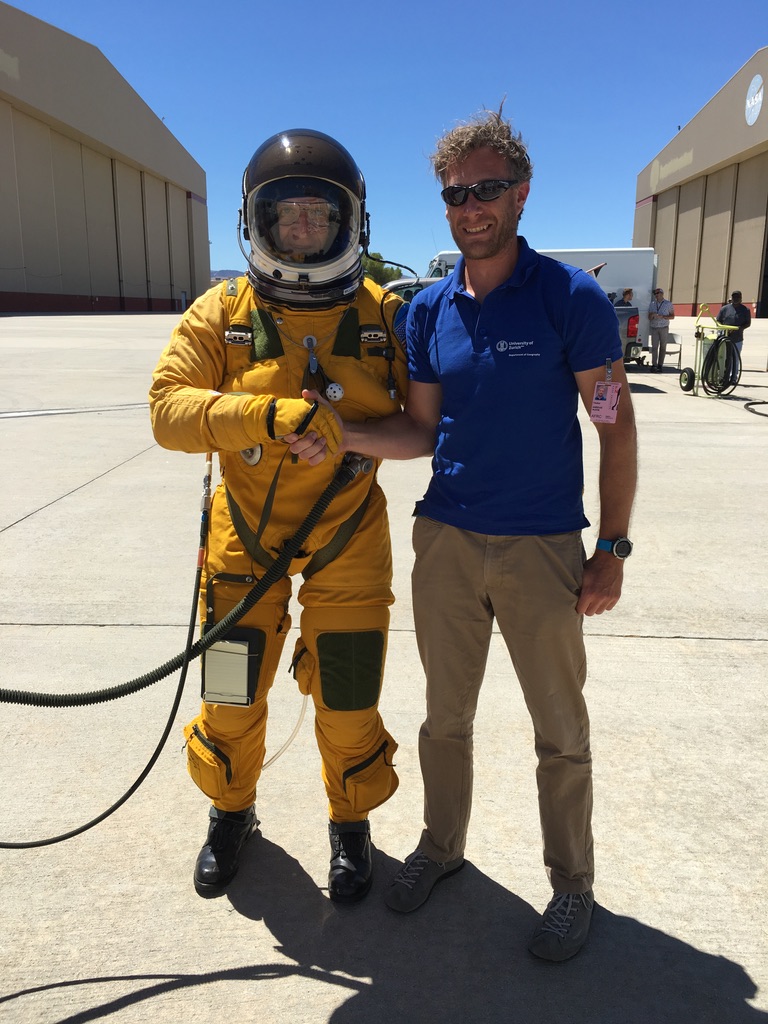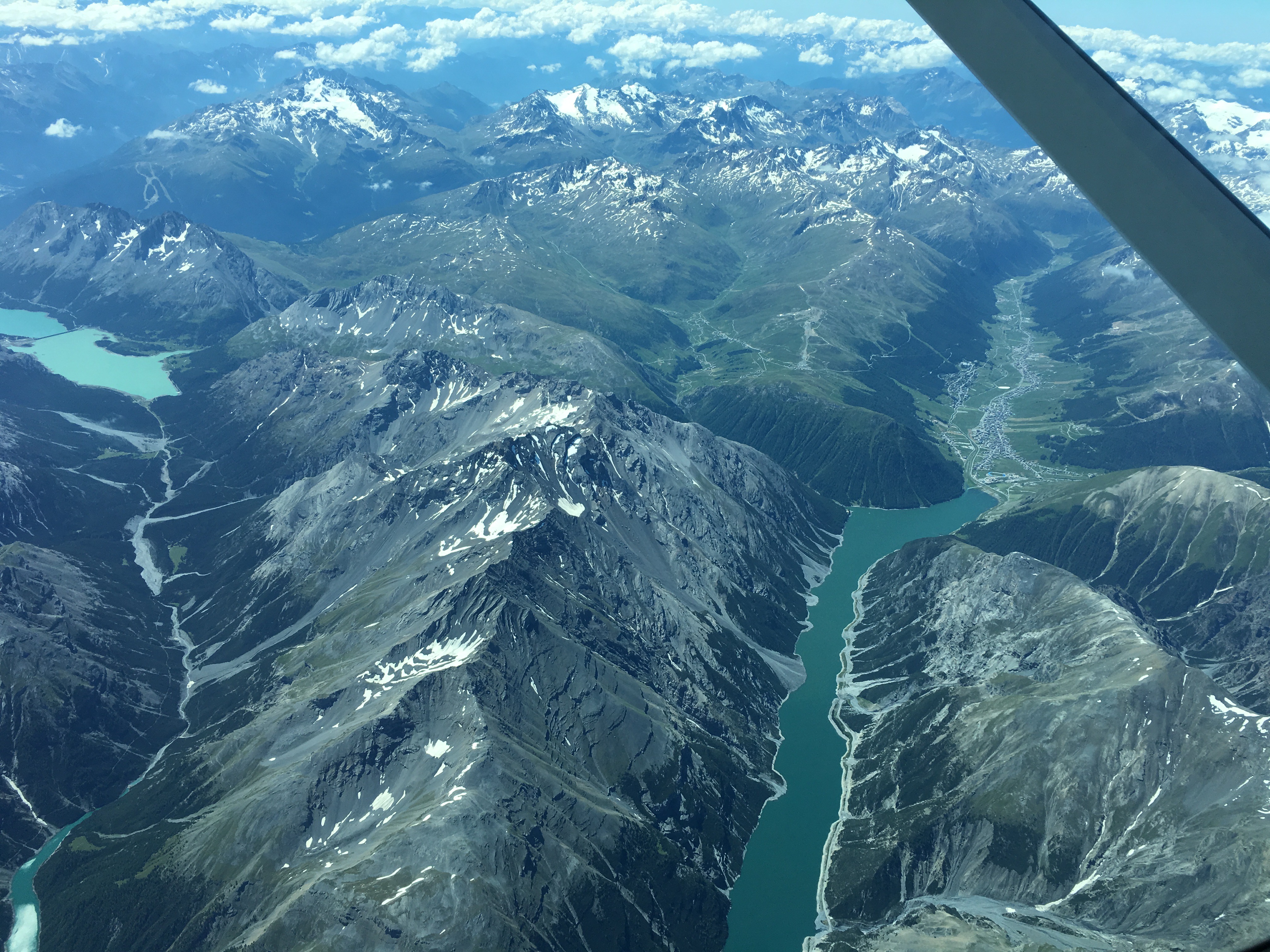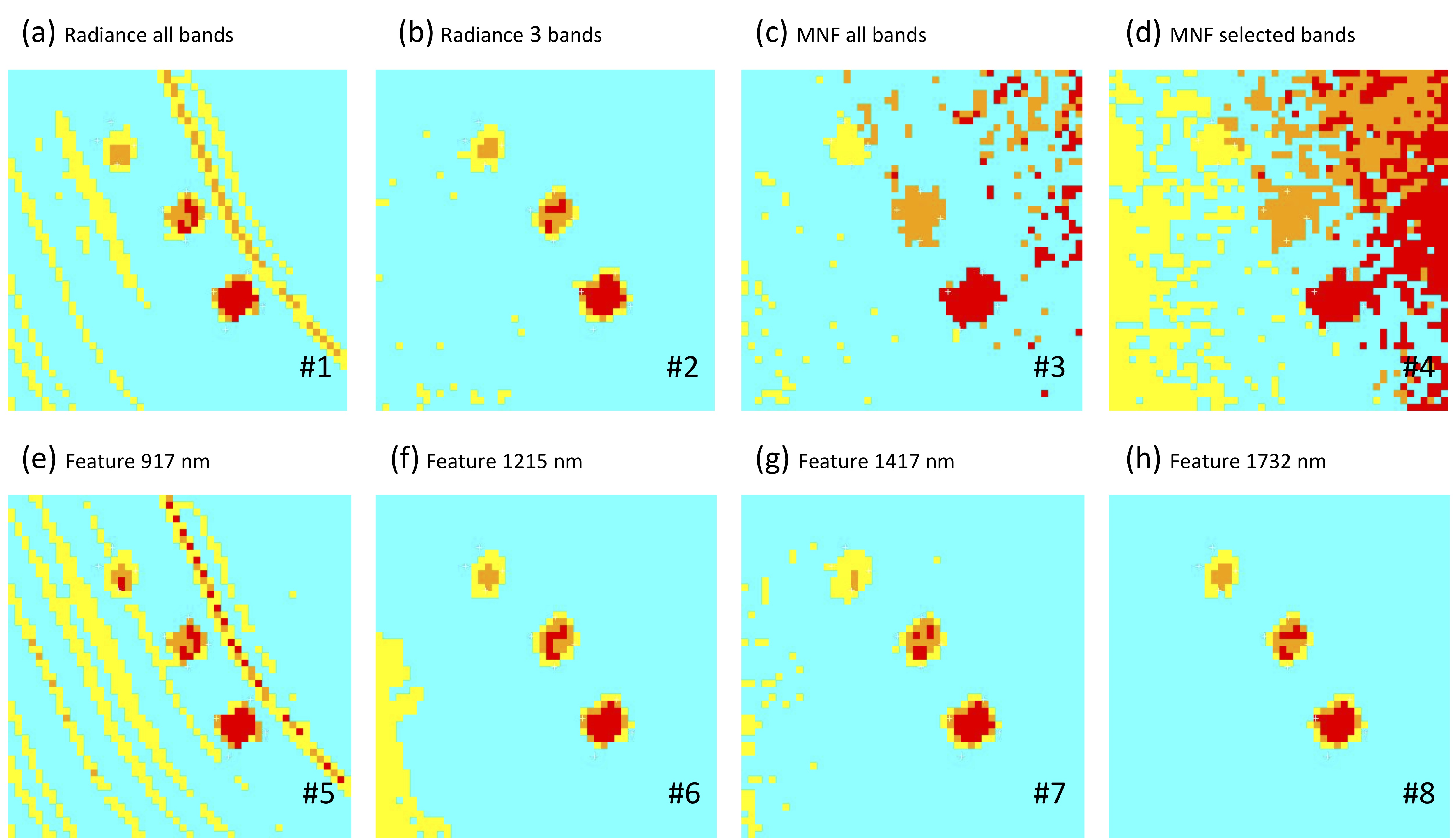Meet a Space Scientist: Dr. Andreas Hueni
This month we have interviewed Dr. Andreas Hueni, shown on the right side of this picture, taken at the NASA Armstrong Research Flight Facility in Palmdale, CA, with one of the pilots of the ER-2 research aircraft, shortly before take-off. Andy is an academic associate with the Remote Sensing Laboratories at the University of Zurich, responsible for APEX (Airborne Prism Experiment) sensor and data calibration, campaign manager for APEX and AVIRIS-NG flights in Europe in collaboration with ESA and NASA, and project manager of the future ARES platform. His research interests are the calibration of spectrometers and the design of combined database and software systems such as the spectral information system SPECCHIO. Want to know more? Read the full interview!

What is the main area of your research?
I'm mainly dealing with the operational aspects of airborne imaging spectroradiometers. These instruments provide a wealth of data that can be used for many applications spanning from environmental monitoring to precision agriculture and mining. My job is to establish operational data flows, covering instrument calibration, uncertainty propagation, flight planning, data processing and calibration/validation of products.

What brought you to the Space sector?
I got into this area rather by coincidence, or maybe it was a logical progression from computer science to geographic information systems to remote sensing. Ultimately, I suppose that it was my interest in navigation and exploration that drew me towards space.
What do you like most about your job?
I'm always keen to apply our technology to actually help and make a difference in the world. A recent side project that we managed to fly piggyback during APEX and AVIRIS-ng missions was a study on the detection of floating plastic waste. This will hopefully help to address one of many pressing environmental problems we are currently facing (read more about this project here).

...and what do you like most about Space?
I enjoy the dynamics of the business, the sense of being involved in unusual operations and feeling occasionally rather smug about cooperating with the major players in the game like DLR or NASA/JPL.
What would be in your opinion the greatest achievement in the Space Sector?
While I'm obviously a big fan of earth and planetary observation, I'd definitely also rate the navigation and timing services of GNSS pretty high. It is enabling the precision navigation we use for our airborne operations, but it also empowers me to track my outdoor activities like biking or sailing anywhere on this globe.
You are part of the UZH Space Hub: What do you think this will mean for you and your research?
I enjoy being part of the Space Hub family as it can enable access to facilities and people hitherto unknown. I do however hope that we find ways to get even more out of Space Hub intra-collaborations in future!
UZH Space Hub